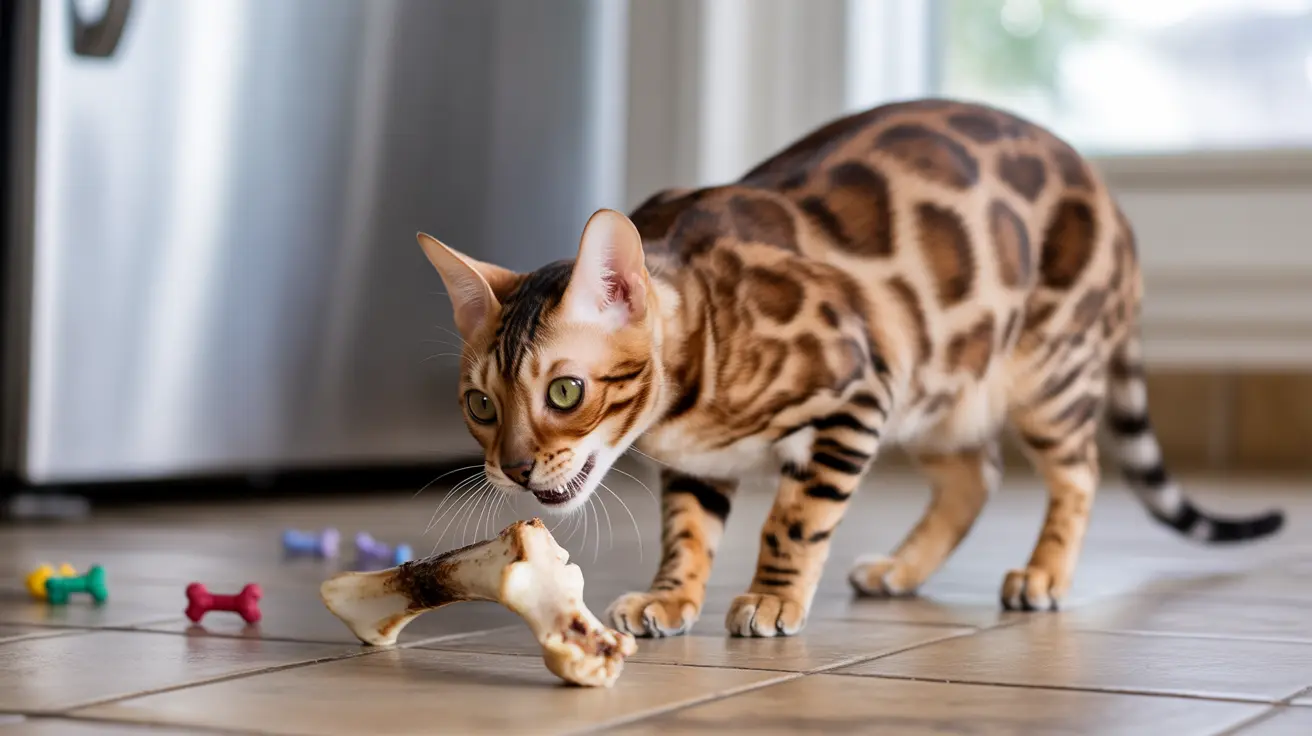Understanding the Dangers of Chicken Bones for Cats
Chicken bones, particularly cooked ones, present significant hazards to cats. When cooked, these bones become brittle and can splinter into sharp fragments, potentially causing severe internal injuries. Even raw chicken bones, while less likely to splinter, carry their own set of risks including bacterial contamination and choking hazards.
The Risks of Cooked Chicken Bones
- Splinter and create sharp fragments
- Cause tears or punctures in the digestive tract
- Lead to internal bleeding
- Create blockages in the throat or intestines
- Result in choking or breathing difficulties
Raw Chicken Bone Concerns
- Bacterial contamination (Salmonella, E. coli)
- Potential choking hazards
- Digestive system blockages
- Tooth damage or oral injuries
What to Do If Your Cat Eats a Chicken Bone
If you catch your cat eating a chicken bone, stay calm and follow these steps:
- Don't attempt to remove the bone forcefully
- Monitor your cat closely for the next 24-48 hours
- Contact your veterinarian immediately for professional guidance
- Watch for warning signs of complications
Warning Signs to Watch For
- Vomiting or retching
- Lethargy or unusual behavior
- Loss of appetite
- Difficulty breathing
- Bloody stool
- Excessive drooling
- Abdominal pain or swelling
Prevention and Safe Alternatives
The best approach is prevention. Keep these guidelines in mind:
- Secure trash containers with tight-fitting lids
- Clear plates and counters immediately after meals
- Store leftover bones in sealed containers
- Consider bone-free alternatives for treats
Safe Dietary Alternatives
- Commercial cat treats designed for dental health
- Small pieces of boneless, cooked chicken
- Cat-specific dental chews
- Veterinarian-approved dental care products
Frequently Asked Questions
Can cats safely eat cooked chicken bones, or are they always dangerous?
No, cats should never eat cooked chicken bones. They are always dangerous as they can splinter and cause serious internal injuries, including tears and punctures in the digestive tract.
What are the signs that my cat has been harmed after eating a chicken bone?
Watch for vomiting, lethargy, loss of appetite, difficulty breathing, bloody stool, excessive drooling, and signs of abdominal pain or swelling. Any of these symptoms requires immediate veterinary attention.
What should I do immediately if my cat eats a chicken bone?
Contact your veterinarian right away for guidance. Monitor your cat closely, but don't try to make them vomit or remove the bone yourself, as this could cause more harm.
Are raw chicken bones safer for cats than cooked ones?
While raw bones are less likely to splinter than cooked bones, they still pose significant risks including bacterial contamination and potential choking hazards. It's best to avoid giving cats any chicken bones.
What are safe alternatives to chicken bones for providing nutrition to my cat?
Safe alternatives include commercial cat treats, specially formulated dental chews, and small pieces of boneless, cooked chicken. Always ensure your cat receives proper nutrition through high-quality cat food recommended by your veterinarian.
Conclusion
While cats may be naturally drawn to chicken bones, the risks far outweigh any potential benefits. The best way to protect your feline friend is through prevention and providing appropriate alternatives. If your cat does consume a chicken bone, don't hesitate to seek veterinary care. Remember, your cat's safety and health should always come first.






